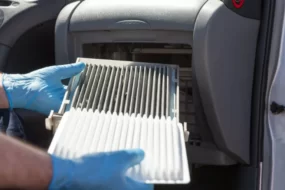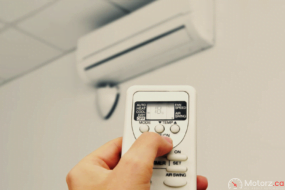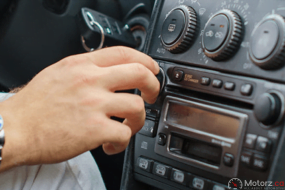Faulty Alternator Signs of alternator problems and solutions The alternator, a crucial component in your vehicle’s electrical system, plays a pivotal role in keeping the battery charged and ensuring a smooth operation of various electrical components. However, like any other part of your vehicle, alternators can face issues over time. In this article, we will explore the signs of a Faulty Alternator and provide practical solutions to keep you on the road without any hiccups.
Dimming Headlights:
One of the most noticeable signs of a Faulty Alternator is dimming headlights. If you notice your lights flickering or becoming noticeably dimmer while driving, it could indicate a problem with the alternator. This happens because the alternator is not producing enough power to meet the electrical demands of the vehicle. Dimming headlights are like the alternator’s way of saying, “Houston, we have a problem.” If you catch your lights doing a flicker dance or just losing their sparkle while you’re cruising, it’s a clear sign that your alternator might be slacking off.
Strange Noises:
Unusual noises, such as grinding or whining, emanating from the alternator area could be a red flag. These sounds may indicate worn-out bearings inside the alternator. Ignoring such noises can lead to a complete alternator failure, leaving you stranded. They often signal worn-out bearings, and it’s not a situation to take lightly. Ignoring these red flags might lead to a complete alternator failure, and the last thing you want is to be stranded somewhere with a dead alternator.
Warning Lights:
Faulty Alternator Modern vehicles are equipped with warning lights on the dashboard, and the alternator warning light is a clear indicator of trouble. If this light illuminates, it’s crucial to address the issue promptly to avoid a dead battery and potential breakdown. While a dead battery could be a standalone issue, it might also be a symptom of a failing alternator. If it fails to do so, the battery will eventually lose its charge, leading to starting problems.
Burning Smell:
A burning smell, especially near the alternator, should never be ignored. Overheating is a common problem in alternators and can be caused by issues such as a worn-out belt or malfunctioning internal components. Prevention is better than cure. Regular maintenance checks, including inspecting the alternator, can help identify potential issues before they escalate.
Addressing Noises Promptly:
If you hear any unusual noises coming from the alternator, it’s essential to address them promptly. Ignoring these sounds can lead to further damage and a more expensive repair bill. Disregarding these sounds can result in additional damage, potentially leading to a more extensive and costly repair. Timely attention to abnormal sounds from the alternator can help prevent further complications and ensure the smooth functioning of your vehicle.
Checking and Replacing the Belt:
The alternator is belt-driven, and a worn-out or loose belt can cause problems. Regularly check the condition of the belt and replace it if necessary. A slipping or damaged belt can significantly impact the alternator’s performance. Regularly testing the voltage output of the alternator can help identify potential problems. If the voltage is consistently below the recommended levels, it may be an indication that the alternator is not functioning correctly.
Professional Inspection:
If you’re experiencing multiple symptoms of alternator problems or are unsure about the diagnosis, it’s advisable to seek professional help. An experienced mechanic can conduct a thorough inspection and pinpoint the issue accurately. If you’re encountering various symptoms associated with alternator problems or if you’re uncertain about the diagnosis, it is highly recommended to seek professional assistance. An experienced mechanic possesses the expertise to perform a comprehensive inspection, accurately identify the issue, and recommend appropriate solutions.
Conclusion:
In conclusion, Faulty Alternator can pose serious challenges to your vehicle’s performance and reliability. Being aware of the signs and taking proactive measures can save you from unexpected breakdowns and costly repairs. Regular maintenance, prompt attention to warning signs, and professional inspections are key to ensuring that your alternator continues to power your vehicle’s electrical system efficiently. Remember, a well-maintained alternator is not just a component; it’s the lifeline of your vehicle’s electrical health.











